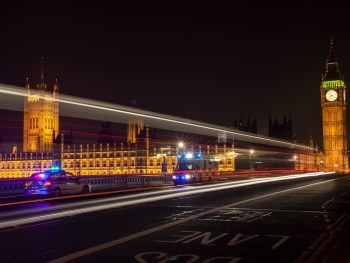A new government-funded project has launched in the UK, focused on enabling emergency service fleets adopt zero-emission vehicles.

Dubbed Project RESPONSE (Robust Emergency Services Performing Operations in Electric), the initiative is launching to tackle the challenges related to planning and dispatching zero-emission emergency service vehicles.
Funded by Innovate UK under the Net Zero Mobility programme, the project seeks to address the obstacles that have hindered the development of comprehensive ZE emergency service operations planning and dispatch systems. The project will be led by Flexible Power Systems (FPS) with support from Cenex.
FPS is developing the new platform based on its inhouse Operate architecture – a data integration software that works with the existing ecosystem used to manage fleet operations.
It connects information about the status of the power available to ensure charging and journey scheduling are booked to maximise efficiencies.
The platform is currently used by commercial fleets to optimise their electric van deployment and is credited with having helped reduce operational costs whilst eliminating tailpipe carbon emissions.
For RESPONSE, Operate will investigate how digital tools and artificial intelligence can be applied to emergency dispatch systems to better accommodate ZE response vehicles. FPS is looking to address the challenges of charging and range restrictions by “creating a co-pilot that delivers streamlined choices for the human dispatcher”.
It’s being supported at the development stage by a user focus group of blue light fleets from the UK and the Netherlands, which include NHS England, Southwest Police Service, Kent Police and Essex Police, and Ambulancezorg Nederland, the Dutch Ambulance association representing all 25 regional ambulance services.
Cenex is also supporting the project, leveraging its experience in blue light stakeholder liaison, modelling and visualisation of vehicle journeys and charging needs, as well as supply chain analysis. This will facilitate the identification of user requirements for current dispatch systems and explore necessary adaptations for ZE vehicles.
Dr Peter Speers, principal technical specialist at Cenex, said: “Project RESPONSE offers an exciting opportunity to utilise our extensive experience in supporting emergency fleets and apply it to the development of zero-emission emergency service operations. With our deep understanding of vehicle technology and fleet operations, we are committed to maximising efficiency and ensuring the seamless integration of sustainable practices into emergency service operations.”
Michael Ayres, managing director at FPS, commented: “The electrification of emergency services vehicles presents the biggest challenge yet in the decarbonisation of transport. The complexities of assessing the correct vehicle to dispatch are myriad for the operator. We’re very proud that Cenex chose us to deliver this crucial service.”

